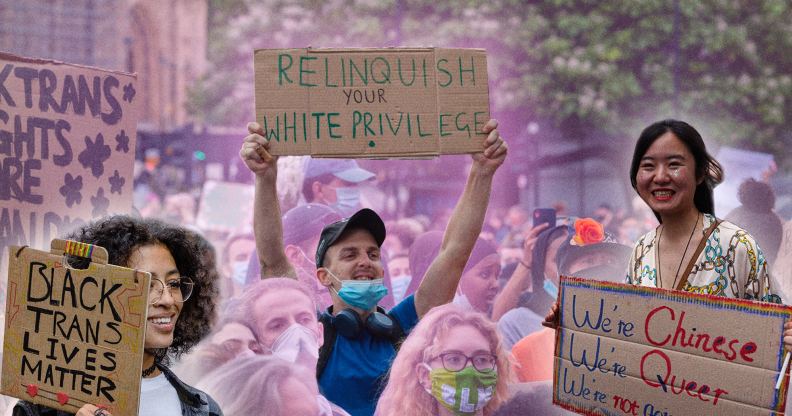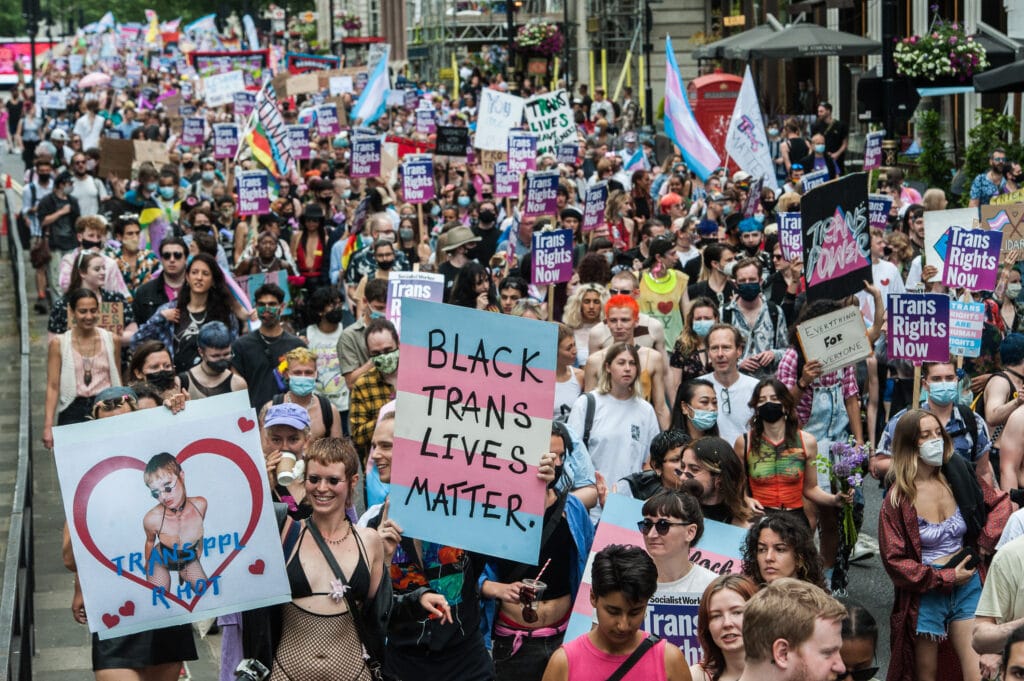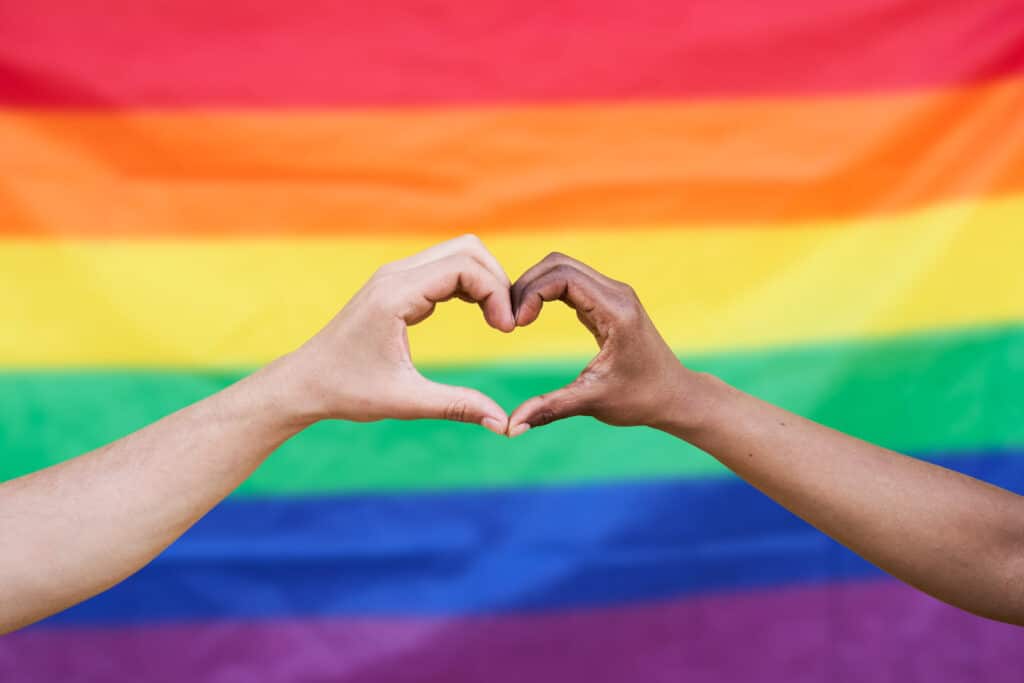The simple reason why we all have a responsibility to call out hate in all its forms

Recognising your own privilege and speaking up for others when it’s safe to do so is vital. (Getty)
The reality of hate crime is that those living at the intersections of identity have a bigger target on their back, and face greater obstacles in gaining justice.
That’s why each of us has the responsibility to recognise our privileges and, when it’s safe to do so, call out injustices wherever we see them.
For decades, London has been a place where queer youth come to find their chosen family, known around the world for its diversity, creativity and vibrancy. The city has a reputation for welcoming all, but as is the case up and down the country, hate remains a sad reality – and those living at the intersections of identity often face discrimination from multiple directions.
Though statistics often talk in terms of hate crimes in terms of race, sexuality, religion, disability or gender, the reality is that for many, their identity is multi-faceted and therefore, makes them a target for more than one reason.
Queer people of colour are “without question” more of a target for hate crime, says Dorothea Jones, co-director of leading anti-racism charity Monitoring Group. But their voices also tend to be silenced.
As a non-binary queer Muslim, Ferhan Khan is no stranger to abuse. The first time they were physically attacked they were just 16; today the threat is simply part of their everyday reality.
“I’m afraid of being myself,” they told PinkNews. “I don’t want to be too fabulous, too glittery, too made up. I tone myself down, specifically so that I don’t attract attention on the Tube, on the bus, on the street. I’m too afraid to really be my truest self.
“Queer Muslims have a double threat of being abused for their sexuality, but also having that policed within the Muslim community. And being a bearded Muslim I attract racial abuse too, I get called a terrorist. So I’ll get that kind of attention as well, unfortunately.”

(Guy Smallman/Getty)
Jones believes it’s a mistake not to recognise the intersectionality of hate crimes, and the structural aspects of discrimination that span communities.
“We know that if we’re looking at London communities, all of them intersect,” she said. “For example, our community has Black people who are gay, Black people who are women, Black people that are disabled, it goes on. There are so many intersections there.”
When it comes to hate crimes, the implications of this are manifold. These victims are less likely to find support when they experience abuse, and when they report it, the complexities of these crimes can be overlooked by police and support services, adding to the sense of mistrust often felt.
“That’s the problem we’re having,” Jones explained. “So speaking as a Black woman, if I was abused, I’d have to assess whether I access services based on misogyny or based on race. It’s that dichotomy that people have to decide between.”
Reporting and calling out hate, when it’s safe to do so, is a way we can all use our relative privilege to be allies.

(Getty)
“I think it’s just about acknowledging the kind of relative harm someone can come to compared to yourself,” Ferhan said.
“For example, I know that I need to be an ally to my transgender sisters who don’t have passing privilege. I need to recognise my own privilege in being able to evade some of that harm.
“I think it’s important for allies to recognise what makes your life slightly easier compared to someone that’s not in your position.
“And we all need to come together and challenge intolerances in our own communities as well, because it’s only then that we can start to form that resistance. It’s about looking to your own people and challenging your own behaviours too.”
The importance of reporting hate crimes
The British Transport Police has a robust system for dealing with hate crimes and says it does note multiple aggravating factors when one is reported. Although the Crown Prosecution Service may follow only one strand if it deems it a stronger case for prosecution, reporting in itself can alert police to specific issues and divert resources to respond.
The BTP’s head of strategic inclusion and diversity, Karen Wiesenekker, said: “Preventing and tackling hate crime is a BTP priority – no one should be subjected to violence or harassment because of who they are.
“Every day we conduct highly visible patrols and dedicated operations across the railway to ensure the safety and security of passengers and staff. We’re proud that our officers and staff come from all walks of life and our diverse teams are ready to respond to incidents of hate crime immediately. With access to more than 150,000 CCTV cameras across the rail network we can quickly identify offenders and make arrests.
“No report is insignificant. Each one helps us to build an intelligence picture, providing us with valuable information that we can act on. If you’re a victim of, or witness to, a hate crime, I urge you to report it to us.”
If you experience or witness a hate crime on London’s public transport network, you can report it to:
- A member of TfL staff
- For incidents on streets or buses, call the Metropolitan Police on 101
- For incidents on Tube or rail services, call the British Transport Police on 0800 40 50 40 or text on 61016. This number is monitored 24/7.
- In an emergency, always call 999.

